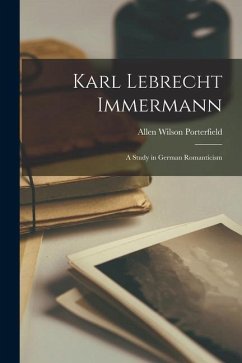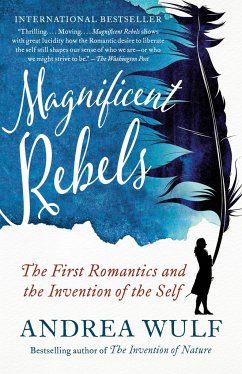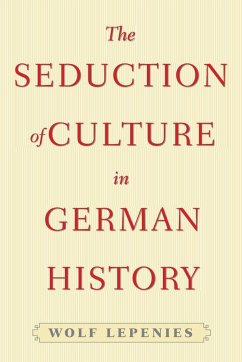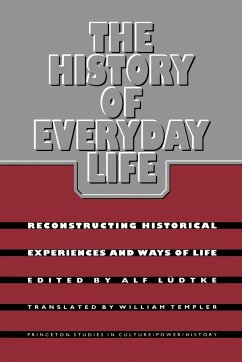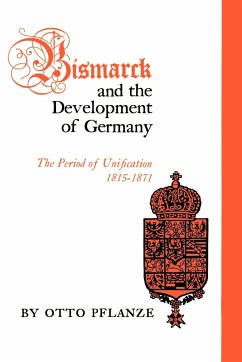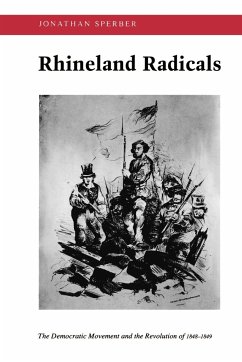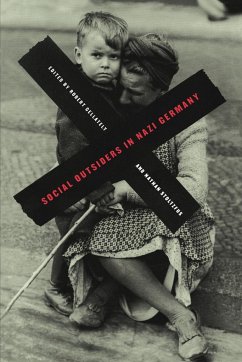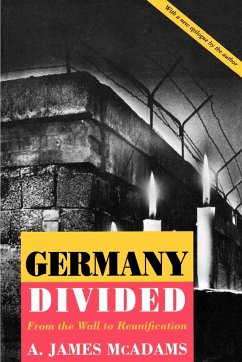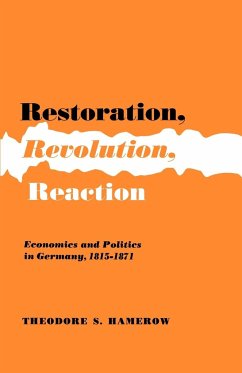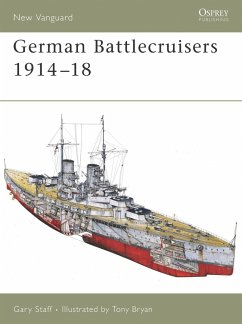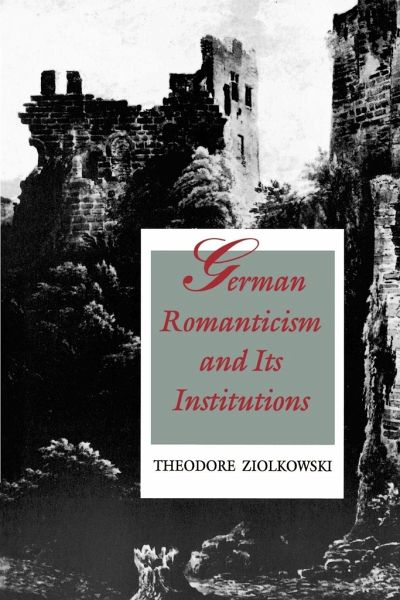
German Romanticism and Its Institutions
Versandkostenfrei!
Versandfertig in 1-2 Wochen
61,99 €
inkl. MwSt.

PAYBACK Punkte
31 °P sammeln!
Using an illuminating method that challenges the popular notion of Romanticism as aesthetic escapism, Theodore Ziolkowski explores five institutions--mining, law, madhouses, universities, and museums--that provide the socio-historical context for German Romantic culture. He shows how German writers and thinkers helped to shape these five institutions, all of which assumed their modern form during the Romantic period, and how these social structures in turn contributed to major literary works through image, plot, character, and theme. "Ziolkowski cannot fail to impress the reader with a breadth...
Using an illuminating method that challenges the popular notion of Romanticism as aesthetic escapism, Theodore Ziolkowski explores five institutions--mining, law, madhouses, universities, and museums--that provide the socio-historical context for German Romantic culture. He shows how German writers and thinkers helped to shape these five institutions, all of which assumed their modern form during the Romantic period, and how these social structures in turn contributed to major literary works through image, plot, character, and theme. "Ziolkowski cannot fail to impress the reader with a breadth of erudition that reveals fascinating intersections in the life and works of an artist.... He conveys the sense of energy and idealism that fueled Schiller and Goethe, Fichte and Hegel, Hoffmann and Novalis...."--Emily Grosholz, The Hudson Review "[This book] should be put in the hands of every student who is seriously interested in the subject, and I cannot imagine a scholar in the field who will not learn from it and be delighted with it."--Hans Eichner, Journal of English and Germanic Philology "Ziolkowski is among those who go beyond lip-service to the historical and are able to show concretely the ways in which generic and thematic intentions are inextricably enmeshed with local and specific institutional circumstances."--Virgil Nemoianu, MLN



